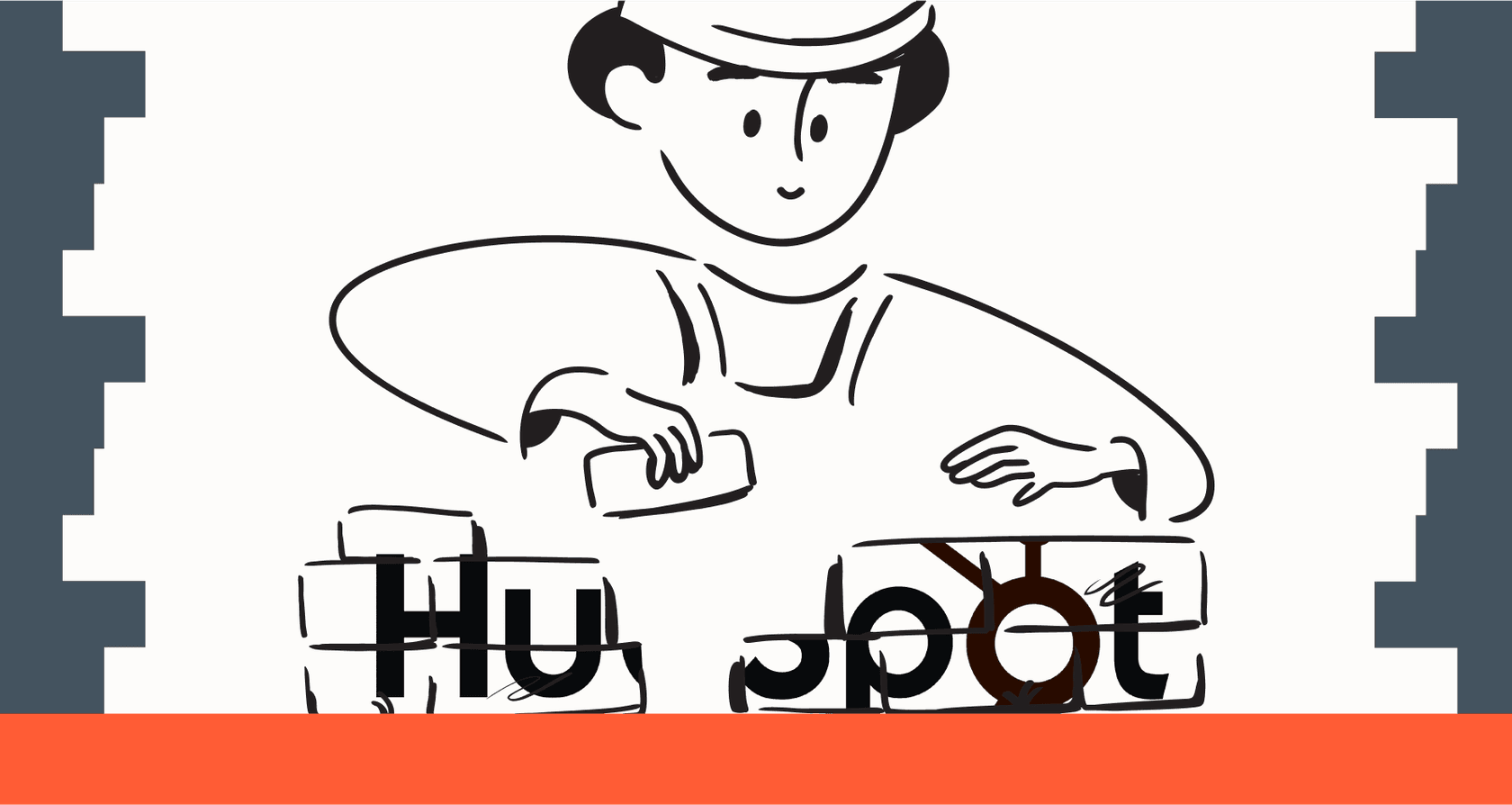Finding the best HubSpot alternatives in 2026: A practical guide

Stevia Putri

Katelin Teen
Last edited January 16, 2026
Expert Verified

HubSpot is a giant in the marketing and CRM world, and for good reason. It has a tool for just about everything. It is a mature, reliable platform that powers customer service and sales for thousands of companies worldwide. For companies looking for a single, unified source of truth, it is an impressive ecosystem.
However, as businesses scale, they often look for ways to complement this powerful platform with specialized tools. Many teams explore how to balance the benefits of an all-in-one system with their evolving needs. Some may find that they want more specialized control over specific feature bundles or are looking for ways to optimize their investment as their contact lists grow. This has become a key topic of discussion as HubSpot rolls out its own advanced AI tools, offering even deeper integration for users within its ecosystem.
This guide isn't just another list of replacements. We're going to dig into why businesses might look at HubSpot alternatives to supplement their stack. More importantly, we'll explore a modern way to think about your tools: building a flexible, powerful tech stack that works alongside HubSpot to do exactly what you need.
What is HubSpot and why consider HubSpot alternatives?
So, what's the deal with HubSpot? At its core, it’s an all-in-one customer platform. It bundles a Customer Relationship Management (CRM) system with dedicated "Hubs" for marketing, sales, customer service, content, and operations. It was built around the idea of inbound marketing, aiming to be a comprehensive single source of truth for everything customer-related.
Its biggest selling point is its incredible scope. You can manage your sales pipeline, launch email campaigns, handle support tickets, and even build your website, all under one roof. For companies that want a single, trusted vendor to handle it all, it's a very compelling offer. HubSpot’s free CRM is also a popular foot in the door, giving startups a robust place to get organized from day one.
While this all-in-one approach is powerful, some teams find the platform becomes highly comprehensive as they grow. Features are often organized into tiered plans to match different team sizes and needs. This structure is exactly why some teams eventually look for more niche HubSpot alternatives to solve specific, highly specialized use cases.
The growth of HubSpot: Why businesses seek alternatives
A common journey for HubSpot users involves navigating the transition from the free tools to more advanced professional features as their needs scale over time. The "free" tools are an excellent way to get started, and as your business matures, HubSpot provides clear paths to upgrade your capabilities.
Beyond the base plans: Understanding growth-focused pricing and upgrades
The pricing model is designed for scalability. Because plans are tiered, you can access more advanced features as your organization grows. When planning your budget, it's helpful to consider:
-
Structured Onboarding: For Professional or Enterprise plans, HubSpot provides mandatory onboarding to ensure your team is set up for success from the start.
-
Scaling Contact Tiers: As your contact list grows, HubSpot offers tiers that allow you to scale alongside your marketing success.
-
Specialized Add-ons: If you need advanced reporting or ad management, HubSpot offers various monthly add-ons to enhance your standard package.
An example of this evolution is the introduction of "Breeze," a premium AI feature. As discussed in the HubSpot community forums, this transition represents HubSpot's commitment to providing cutting-edge AI capabilities within their platform.
While HubSpot provides a powerful, integrated ecosystem, a modern approach is often to pick specialized tools that complement it. For example, instead of using every native HubSpot feature, a tool like eesel AI can connect directly to your existing help desk. It offers powerful support automation with transparent pricing that works alongside your existing setup.
Optimizing your feature set: How HubSpot alternatives can help
With such a comprehensive platform, some businesses find they use certain hubs more than others. They might seek specialized tools to excel in one or two functions that are most critical to their specific business model.
Focusing on your core needs: How HubSpot alternatives can help
Many businesses choose to focus on the 20-30% of features they use most frequently while looking for specialized HubSpot alternatives for the rest. For instance, while HubSpot provides great templates, a team with very specific design needs might look for a specialized landing page platform to complement their CRM.
This is especially relevant with the rise of AI. HubSpot's AI assistant, Breeze, is a powerful tool for those fully integrated into the platform. However, if your support team uses other help desks like Zendesk or Intercom, you might look for a complementary AI solution. This allows you to maintain your preferred support operation while still benefiting from AI automation.
Instead of being tied to a single platform's specific AI path, you can add a flexible AI layer that enhances the tools you already use. That's exactly what eesel AI was built for. It connects to over 100 sources, including your past help desk tickets, knowledge bases in Confluence or Google Docs, and even your internal Slack conversations. It learns from your company's actual data to give highly accurate answers, working as a specialized AI engine without requiring you to change your current CRM.

Furthermore, you can evaluate its impact early on. eesel AI’s simulation mode can run on thousands of your past tickets to show you exactly how it would have performed, providing a clear picture of your potential automation rate and return on investment.

How to evaluate HubSpot alternatives
When you start exploring HubSpot alternatives, the goal is often to find the best specialized tools to solve specific needs. Here are a few things to keep in mind for a successful evaluation.
Key criteria for your search
-
Integrate or replace? Do you need to replace your entire system, or can you enhance it? A "best-of-breed" approach, where you connect specialized tools to HubSpot, often provides great power and flexibility.
-
Customization and control: Look for solutions that let you build your own automation rules and customize the AI's tone, ensuring the tool fits your specific brand voice.
-
Ease of setup: Modern tools are often self-serve. You should be able to sign up, connect your accounts, and see results quickly without needing a long development cycle.
-
Pricing model: Look for transparent pricing that is easy to understand and stays predictable as your business grows.
A solution like eesel AI is a smart, complementary move for your support team. It exemplifies this modern approach:
-
It integrates perfectly: It works with your existing help desk and knowledge sources.
-
It offers customization: A flexible workflow engine means you can automate things your way.
-
It's quick to start: You can be up and running in minutes.
-
Transparent pricing: Simple monthly or annual plans without complex tiers.
This allows you to enjoy the benefits of powerful AI support automation while maintaining your investment in your central CRM platform.
HubSpot pricing explained: Why businesses seek alternatives
To see why some teams explore alternatives for specific needs, let's look at the investment structure. While HubSpot provides excellent free and starter plans, the transition to professional tools reflects the platform's advanced capabilities. Here is a look at the Marketing Hub plans for 2026.
-
Starter: This plan begins at around $20/month, providing a great entry point for basic marketing needs.
-
Professional: Starts at $800/month (when billed annually at $9,600/year). This plan includes advanced automation and a one-time onboarding investment of $3,000.
-
Enterprise: Starts at $3,600/month (billed annually at $43,200/year). This includes comprehensive features for large teams and a one-time onboarding investment of $7,000.
These prices reflect the maturity and robustness of the platform. For businesses with very specific niche needs, comparing these costs with specialized alternatives can help in building the most efficient tech stack.
| Feature | Marketing Hub Professional | Marketing Hub Enterprise |
|---|---|---|
| Starting Price (Annual) | $800 /month | $3,600 /month |
| Onboarding Investment | $3,000 | $7,000 |
| Marketing Contacts | 2,000 included | 10,000 included |
| Omnichannel Automation | Yes | Yes (with advanced features) |
| Custom Reporting | Up to 100 reports | Up to 500 reports |
| Teams | Up to 10 teams | Up to 300 teams |
Build a smarter stack, don't just find a replacement
The main takeaway is that HubSpot is a world-class platform that serves as an incredible foundation. Exploring HubSpot alternatives doesn't mean you have to leave the ecosystem. Often, these alternatives act as specialized additions that provide extra power in specific areas.
By thoughtfully curating your tech stack, you can use HubSpot as your core CRM while picking the best AI for your support crew. This approach allows you to scale each part of your business with the most specialized tools available.
Get powerful AI without the platform lock-in
If you want to add powerful AI to your customer support while maintaining your current HubSpot setup, eesel AI is an excellent option. It integrates with your existing tools to provide autonomous agents, agent assistance, and smart triage.
Start a free trial today and simulate your automation potential in minutes.
Frequently asked questions
HubSpot's pricing model is designed to grow with your business, which can include tiered contact pricing and onboarding. Exploring HubSpot alternatives can help you find specialized solutions that offer predictable costs tailored specifically to your team's current usage patterns.
Instead of a full suite, HubSpot alternatives allow for a "best-of-breed" approach. This means you can select specialized tools that excel in specific functions, ensuring you are investing in the exact capabilities your team needs most at their current stage of growth.
HubSpot alternatives enable you to build a highly customized tech stack. This allows you to scale and update individual components independently, giving you the flexibility to adapt your infrastructure as your business requirements evolve over time.
Yes, specialized tools like eesel AI can complement HubSpot or work alongside other help desks and knowledge bases. This provides powerful AI options that work with your existing infrastructure, enhancing specific support workflows.
Key criteria include deciding whether to integrate new specialized tools into your stack or replace existing functions, the level of customization required, and the ease of setup. Focus on solutions that provide immediate value and align with your long-term operational goals.
For many businesses, a "best-of-breed" strategy using specialized HubSpot alternatives provides high-level flexibility. This allows you to pick top-tier solutions for specific functions while HubSpot remains the robust, central source of truth for your CRM data.
The process often involves a gradual integration of specialized tools alongside your HubSpot functions. Many modern solutions emphasize self-serve setup and easy integration, allowing you to enhance your capabilities without significant disruption to your workflows.
Share this post

Article by
Stevia Putri
Stevia Putri is a marketing generalist at eesel AI, where she helps turn powerful AI tools into stories that resonate. She’s driven by curiosity, clarity, and the human side of technology.






